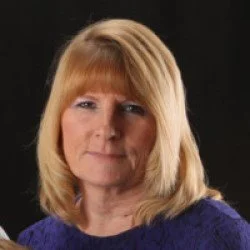Written By: Frankie Lacy, Op-Ed Writer
The mortgage industry has been through quite a few ups and downs since 2007. We have experienced layoffs, sweeping regulatory changes and fluctuations in business. The press and public opinion on the mortgage industry has largely been negative due to mortgage fraud and the bursting of the housing bubble. So for those who are looking to get started in the mortgage industry or re-enter the industry after an extended hiatus, you may be wondering; what are the benefits of becoming a mortgage professional?
Need Mortgage Training? CLICK HERE to Download Brochure --->>
I. Compensation
The primary benefit of a career as a mortgage professional is excellent compensation. As a mortgage processor you may be paid a base wage, overtime, and incentives based on production. As an underwriter, you can be paid a base salary, overtime, and per-file bonuses when underwriting over the weekend. Many companies pay annual bonuses when volume and profits are up and most have a benefits package for their full time employees. In addition, mortgage companies can offer referral fees when you refer a new employee or client.
II. Opportunity
There are several career paths one might take within the mortgage industry. Many mortgage professionals start out in sales and then make the switch over to operations. Within the operations department you may start out in processing and transition into closing, underwriting, or quality assurance. Many also choose to move into management. Whichever path your career takes, you can be reasonably sure that there is always opportunity to learn more and grow into more responsibility and higher compensation levels.
In addition to opportunities for career advancement, the mortgage industry offers unlimited opportunities to learn about mortgage lending programs, underwriting guidelines, and compliance. Most companies have access to free trainings through their investor and mortgage insurance company websites. Employees should take advantage of these trainings as much as possible. Fannie Mae, Freddie Mac, HUD/FHA, and VA all have free webinars that are updated frequently to supplement and update the comprehensive instruction you receive through training programs like the Mortgage University.
III. Financial Savvy
As you gain more experience in the mortgage industry, you encounter many different scenarios relating to financial planning, credit, income, and investments. I have learned quite a bit about economic trends, real estate investment, and savings strategies that have worked well for my clients and co-workers. As you develop relationships with more experienced mortgage professionals, many can offer life changing wisdom regarding financial matters.
Need Mortgage Training? CLICK HERE to Download Brochure --->>
All in all, a career as a mortgage professional can be highly rewarding both fiscally and personally. I have met some phenomenal people that I have maintained contact with through the years. Many of these people have mentored me and been instrumental in the achievement of my career goals. I would highly recommend this industry to anyone who is unafraid of risk and is willing to overcome challenges to reap excellent rewards.
About The Author
Frankie Lacy - As an op-ed writer, Ms. Frankie Lacy is a 15+ year mortgage industry veteran with extensive conventional mortgage underwriting experience. Topics of Frankie's expertise include: Fannie Mae, Freddie Mac, USDA Rural Housing, underwriting to investor overlays, self-employed borrowers, personal and business tax return analysis, rental income, condos/co-ops/PUDs, and more. Frankie is a Davenport University graduate with a degree in Business Administration.














































